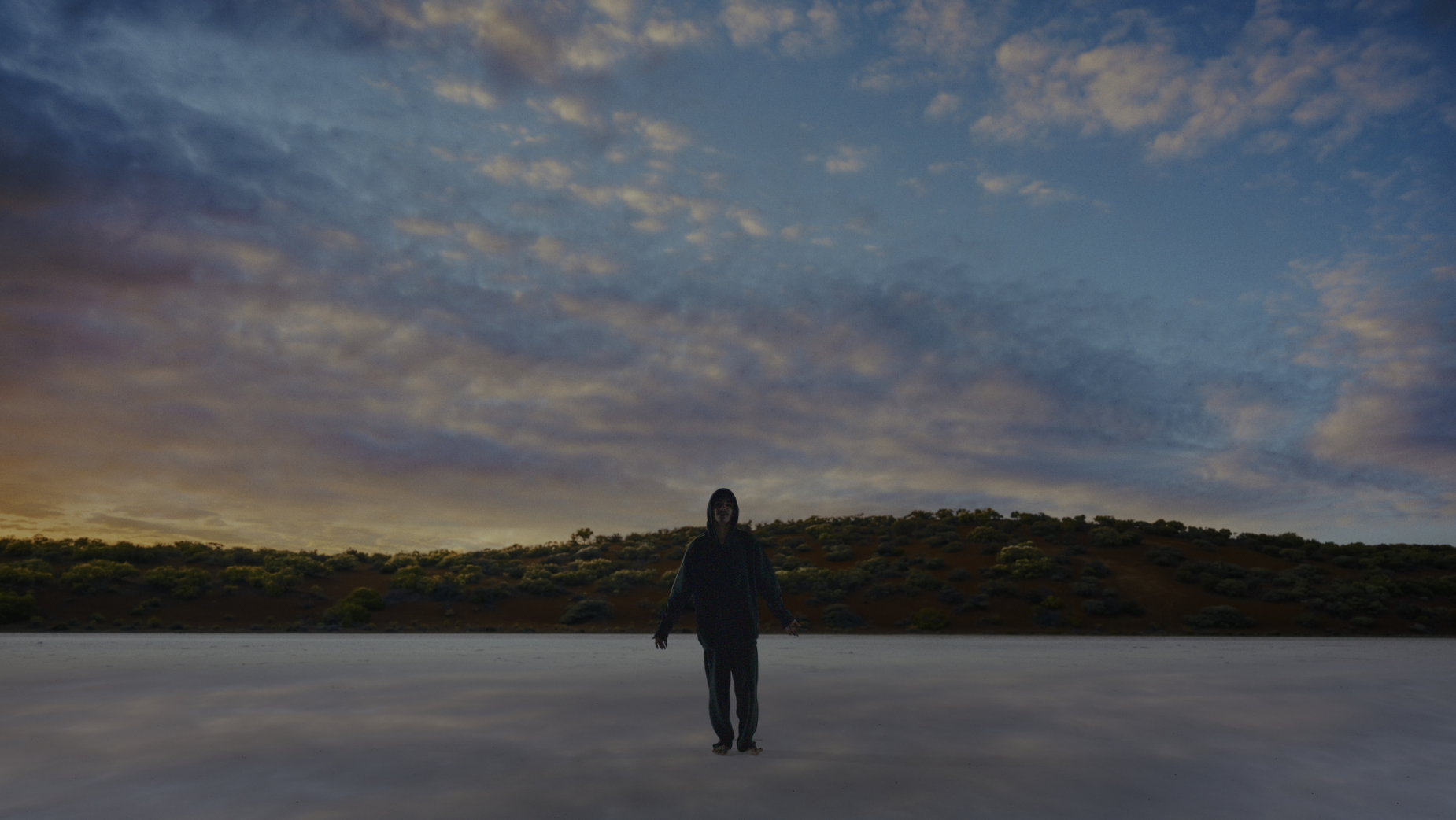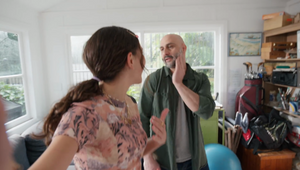
Warwick Thornton and Dr. Tracy Westerman Launch Film Tackling Indigenous Suicide Crisis

Leading Aboriginal voices, creatives, and mental health professionals have come together with Apparent and Photoplay to launch ‘Change Direction’, an initiative focused on raising awareness of the rate of suicide in Aboriginal communities and the role culture plays in reversing the crisis.
The Westerman Jilya Institute for Indigenous Mental Health, founded by psychologist Dr. Tracy Westerman AM (Nyamal) partnered with Aboriginal creatives, including director Warwick Thornton (Kaytetye), poet Dakota Feirer (Bundjalung-Gumbaynggirr), actor Pedrea Jackson (Jingili-Mudburra-Waramungu) and songman Fred Leone (Butchulla), to develop the campaign.
The campaign is led by a short film, collaboratively written by Apparent and Dakota, which centres on a palindromic poem that turns negatives into positives through the power of cultural connection.
The project aims to change the direction of Aboriginal mental health by spotlighting Jilya’s story, showing how more Aboriginal psychologists and improved screenings can help prevent suicide in Aboriginal communities.
Jackson Long, creative director at Apparent creative director Jackson Long told LBB that the challenge was to delicately display trauma, not dramatise it.
“We’d consulted with Dr. Tracy Westerman about exactly that, and she felt the same as we did – that in order for people to truly empathise, you have to show [audiences] the pain in a real way, so the hope is that much greater,” he said. “ But what really carried it in the end is the performance of Pedrea Jackson, who made the words feel both singular yet universal.
“From the outset of crafting the concept, we knew there had to be a symmetry to the poem and film -- both in the actual format, but also in the emotions conveyed. The hope does not land without the despair. The empowerment does not evoke emotion without the helplessness.”
The Institute funds scholarshipsfor Indigenous people in high-risk communities to become psychologists in the places they’re most needed. The vision: “build an army” of Indigenous psychologists.
Jilya Institute research shows one in four Indigenous youth accessing mental health services have attempted suicide, and 42% have had suicidal thoughts. The suicide rate among Aboriginal adults has risen 30% in the past 5 years to an all-time high, and more than double that of non-Aboriginal Australians.
Award-winning Australian director Warwick Thornton, who brought the story to the screen, said it’s about sparking real conversations in our communities.
“You want this conversation to get to the breakfast table, to happen at a bar, amongst friends and strangers,” Warwick said.
“To talk about what’s going on with the younger generation of Indigenous people. That’s what this project will do.”
Dr. Tracy Westerman said the existing, “broken” Australian mental health system was built "by the privileged to favour the healing methods of the most privileged, but delivers its services to the least privileged of us.”
“It’s time to rebuild it from the ground up, with Aboriginal excellence leading the way,” she said.
Apparent chief creative officer Hamish Stewart said the creatives were dedicated to serving the issue.
“The team were committed to doing something to help address an issue that has been overlooked for too long, but were equally conscious that it’s not our story to tell,” Hamish said.
“We’re so grateful to every member of the community who not only understood the intention but embraced the project, brought their artistry to it, and truly made it their own.”
Jackson added, “Australia has gotten used to hearing from non-Aboriginal people about all the negative and failed ways to ‘fix’ Aboriginal issues.
“This initiative encourages all Australians to listen and respond to Aboriginal voices about Aboriginal issues.”
“The palindrome was always at the core of the idea – not just in the written form, but as a metaphor for the crisis as a whole. We wanted to reverse the narrative of what is happening and what is possible, so every proof of concept we generated relied on the palindrome.”
Photoplay executive producer Florence Tourbier said it was a privilege to work on the project with Warwick and Apparent.
“We're so grateful to all the collaborators who brought their unwavering care and dedication to create this beautifully chilling, yet hopeful film,” she said. “We wish for it to inspire meaningful change for a better mental health future.”
The film and campaign launched nationwide leading into National Reconciliation Week 2025 across TV and streaming services and out of home, on an entirely pro bono media plan.
Ads will run in The Sydney Morning Herald, The Age, The Australian, Qantas Magazine, and 125 cinemas around the country via Val Morgan.
Qantas has also ensured ‘Change Direction’ will play as a pre-show short feature before all Australian movies in June and July across its entire fleet.
The accompanying social campaign features prominent Australians Adam Goodes, Cathy Freeman, Tim Minchin, and Zoe Foster Blake.
Chief strategy and retail media officer and RAP executive sponsor at oOh!media, Andrew Every, said, “oOh!media is proud to support this vital initiative by amplifying it across our national digital network which we hope will support a lasting change for Indigenous mental health."
Jackson added, “We always placed the highest importance on whether the Aboriginal community felt the final film reflected the experience accurately.
“To have had conversations with and such positive feedback from Cathy Freeman, Adam Goodes, Warwick, Dr. Westerman, and so many in-community leaders has meant we achieved that goal. We always wanted to elevate voices. And I think we’ve done that.
“We’ve taken the position that our job is always to listen first. To have an agenda for the Change Direction initiative beyond this launch is something we’ve considered, but ultimately it will come down to what the response is like.
“From a campaign momentum perspective, we anticipate this continuing to gain momentum as more people see it, but we also have plans to screen the short film at the Opera House later this year and the World Indigenous Suicide Prevention Conference in 2026.”















